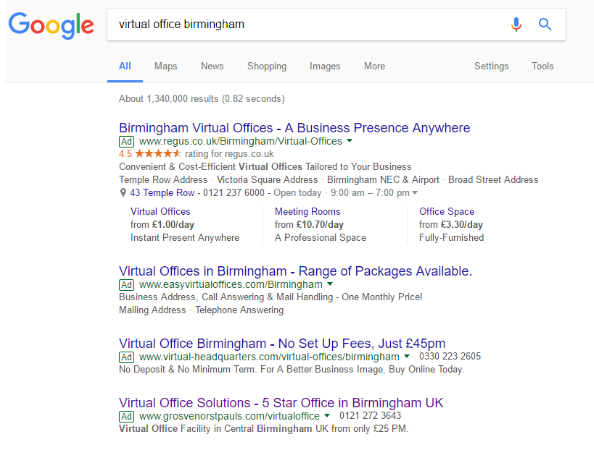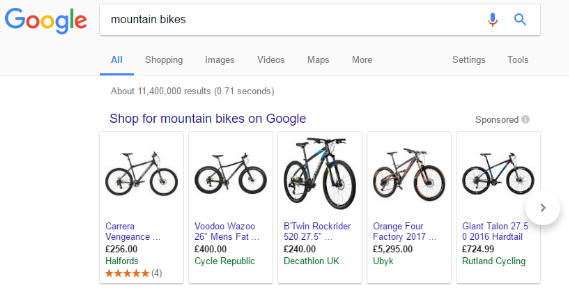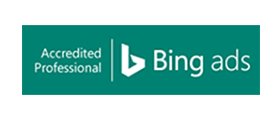In my previous article, I provided a brief overview of your options for advertising your business online. In this article, we are going to go into more detail on advertising your business using PPC on the popular search engines Google & Bing.
PPC & Search Engine Marketing (SEM)
The first hurdle with PPC is the terminology and the following terms are often used interchangeably:
- CPC – Cost Per Click
- SEM – Search Engine Marketing
- PPC – Pay Per Click
- Search Engine Advertising
These are all generally referring to the same thing which is the advertising of your business on search engines using the platforms provided by Google and Bing.
Search: The Moment of Truth
Search engine advertising in its many forms is powerful as we are targeting users at the very moment they have a requirement. If a person searches for “small business PPC management”, we could be pretty sure they would be a good match for our small business search marketing package.
This is unlike traditional advertising where we could put an advertisement in a business newspaper and hope that a percentage of the audience A) notice the advert and B) are interested.
Unlike traditional advertising where we are hoping a percentage of people who see an advert are in the market for what we sell, search advertising targets the user at the very moment they conduct the search.
This is not to say this makes this kind of advertising easy. There will be competition on the search engine results page from other advertisers and the natural (aka organic) search results. It’s very much a buyers market so your messaging has to be carefully crafted and built upon solid marketing fundamentals to ensure you win the click.
Search Ads vs Organic Listings
Search ads have evolved beyond the basic text ads of old. We now have image-based product ads and advanced text ads with multiple additional features known as extensions. Text ads are now far larger than organic listings and occupy the premium real estate at the top of the screen – in many cases pushing organic ads below the fold.
Expanded Text Ads
Text ads can command a large slice of screen real estate and this example for Regus below shows just how large an ad can become. We have a heading, a link, reviews, a description, bullet points, address, phone number, opening hours. Below this, we have links to individual products with details for the product itself.
If we contrast that to a traditional organic listing then not only does the paid advert have pride of place at the top of the page where every searcher will see it, but the single ad can occupy the space of three organic listings.

Shopping Ads
Where the search relates to a specific product, Google will often prioritise shopping adverts as shown below.

Search: The User Journey
To make the most from search engine marketing, we really have to consider the customer’s mindset and the user journey.
- Who are they?
- Why do they buy?
- How do they buy?
By answering these questions, we can understand how the user searches throughout the purchase process and ensure we have ads and content to target that user at all stages of the process.
If we consider mountain bikes, a user may start their journey with informational requests:
- Best mountain bike brands
- Best mountain bikes under £500
- Best mountain bikes under £1000
As they progress, they may start to evaluate specific models and compare brands:
- Whyte mountain bikes vs canyon mountain bikes
- Whyte 901 mountain bike review
- Canyon spectral review
Eventually, as they decide upon a model (or models):
- Whyte 901
- Whyte 901 best price
- Whyte 901 discount
- Whyte 901 free delivery
The takeaway here is that users typically go through a journey and you can use search ads to target them at all stages of that journey.
From Search to Sale
It is also important to consider the entire process for your search engine adverts and how they connect into your marketing funnel.
- User searches
- Reviews adverts
- Clicks on advert
- Reviews landing page
- Generates lead via the call to action
This is highly simplified, but it serves to illustrate that there is more going on here than just a simple search advert. You must consider the page that is showed to a user when they land on the site and how you then progress the user to the next stage.
Using the mountain bike example above, if we targeted a user with ads promoting a 10% discount code early on in the buying process then we get in front of the user earlier. We can also then use remarketing ads later in the buying process to stay in front of that user.
Targeting Options for Search Adverts
Search ads offer advanced targeting options which allow for fine precision when targeting your adverts.
Keyword targeting: choose words or phrases relevant to your product or service so that your ads appear when customers use those terms to search on Google or search partner sites. By creating a highly relevant keyword list, you increase your chances to show your ads to the most interested customers. Keywords are targeted across a range of match types that allow for loose, moderate, or tight precision. Negative keywords can also be used to ensure ads only show when relevant.
Location and language targeting: ads can be shown only in finely targeted geographic locations. From individual postcodes to entire countries. Languages can also be included or excluded.
Device targeting: show your adverts to users on mobile phones, tablets or desktop computers. Alternatively, customise adverts for specific devices.
Day & time: show adverts only in the morning or evening or during office hours. Adjust bids to show adverts more aggressively during times where your customers tend to buy.
Audience targeting: show your ads to prospects who have previously visited your site. Create lists of users based on pages viewed and behaviour.
By combining these targeting options, you can create ad campaigns that have multiple stages and fine precision. Want to target people on their mobile phone during their lunch break in central Birmingham and provide them with a click to call option? No problem.
Hopefully, this gives you a good overview of just how powerful PPC search adverts can be. If you are looking to jump into PPC, be sure to download our free PPC strategy guide to get you started on the right path.
If you have any questions on how to best leverage search ads for your business, drop me a line via our contact page or follow Bowler Hat on Twitter, Facebook or LinkedIn.







